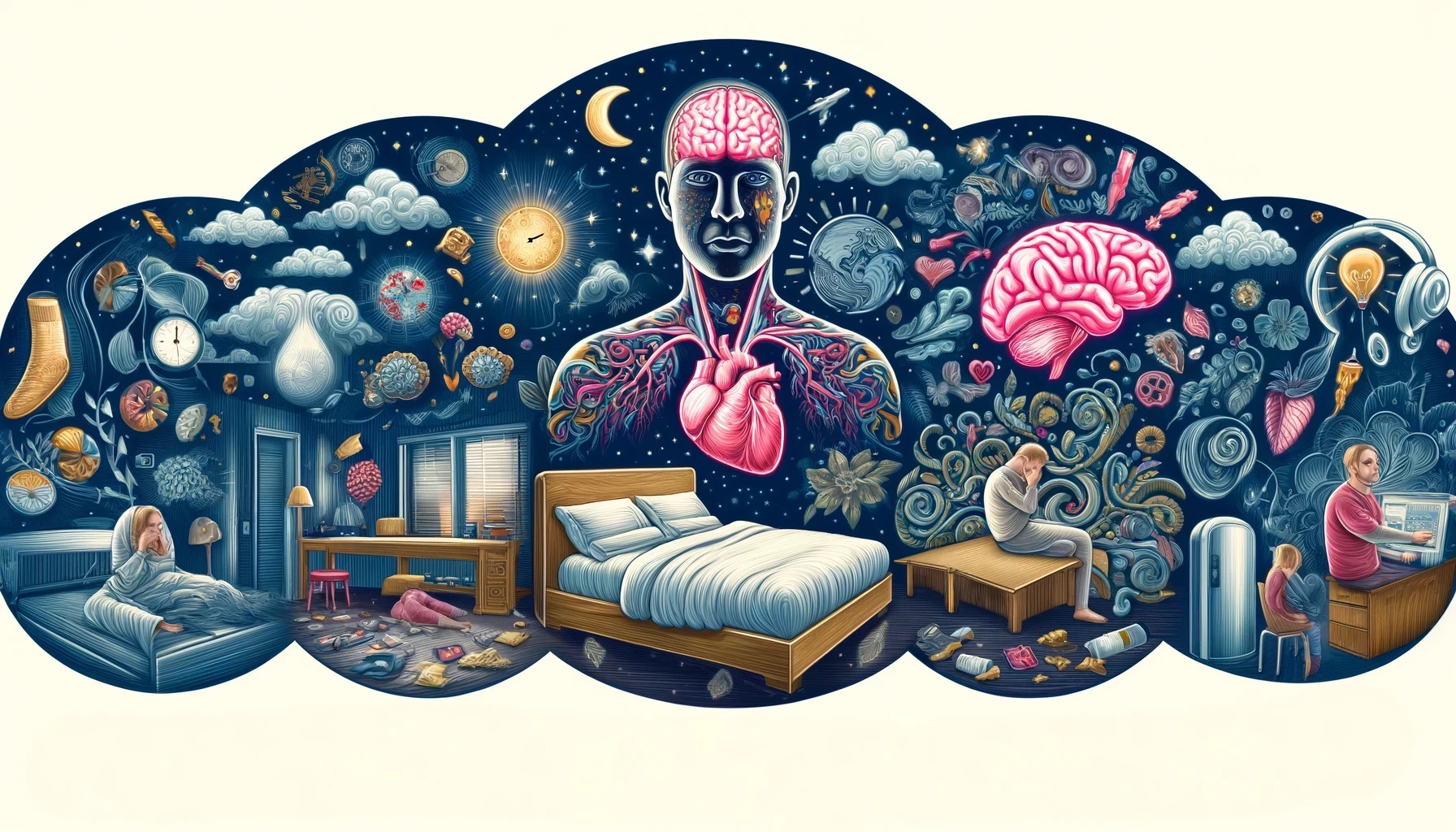Insomnia is a complex sleep disorder that can stem from a myriad of causes. These can be broadly categorized into psychological, environmental, and physiological factors. Each category impacts sleep in unique ways, and understanding these can help in effectively managing or treating insomnia. This part of the series draws from a range of scientific studies to explore these underlying causes.
Psychological Factors
- Stress and Anxiety: Stress activates the body's stress response system, increasing hormones like cortisol, which disrupt sleep (Smith et al., Journal of Clinical Sleep Medicine, 2020).
- Depression: Alters sleep architecture, leading to early awakenings and reliance on medications (Johnson & Spinweber, Sleep Research, 2019).
- Psychological Trauma: PTSD and trauma-related disorders frequently feature insomnia, with nightmares interrupting sleep (Harvey, Psychiatric Quarterly, 2021).
Environmental Factors
- Light Exposure: Blue light from screens suppresses melatonin production, disrupting sleep (Thompson et al., Environmental Health Perspectives, 2020).
- Noise: Urban environments with persistent noise lead to fragmented sleep (Lee & Smith, Urban Studies, 2021).
- Bedroom Environment: Uncomfortable mattresses or temperatures disrupt sleep (Gomes, Journal of Sleep Research, 2022).
Physiological Factors
- Genetic Predispositions: Genes regulating circadian rhythm may predispose individuals to insomnia (Patel & Steinberg, Genetics in Medicine, 2020).
- Hormonal Changes: Fluctuations during menopause or pregnancy disrupt sleep (Franco et al., Sleep Medicine Reviews, 2021).
- Medical Conditions: Conditions like chronic pain, GERD, or neurological disorders complicate sleep (Martin, American Journal of Medicine, 2021).
Conclusion
Understanding the causes of insomnia is crucial in managing this complex condition effectively. By addressing the psychological, environmental, and physiological factors, individuals can tailor their approach to mitigating insomnia's impact. Future parts of this series will delve into diagnostic methods, current treatments, and emerging research in sleep medicine.
